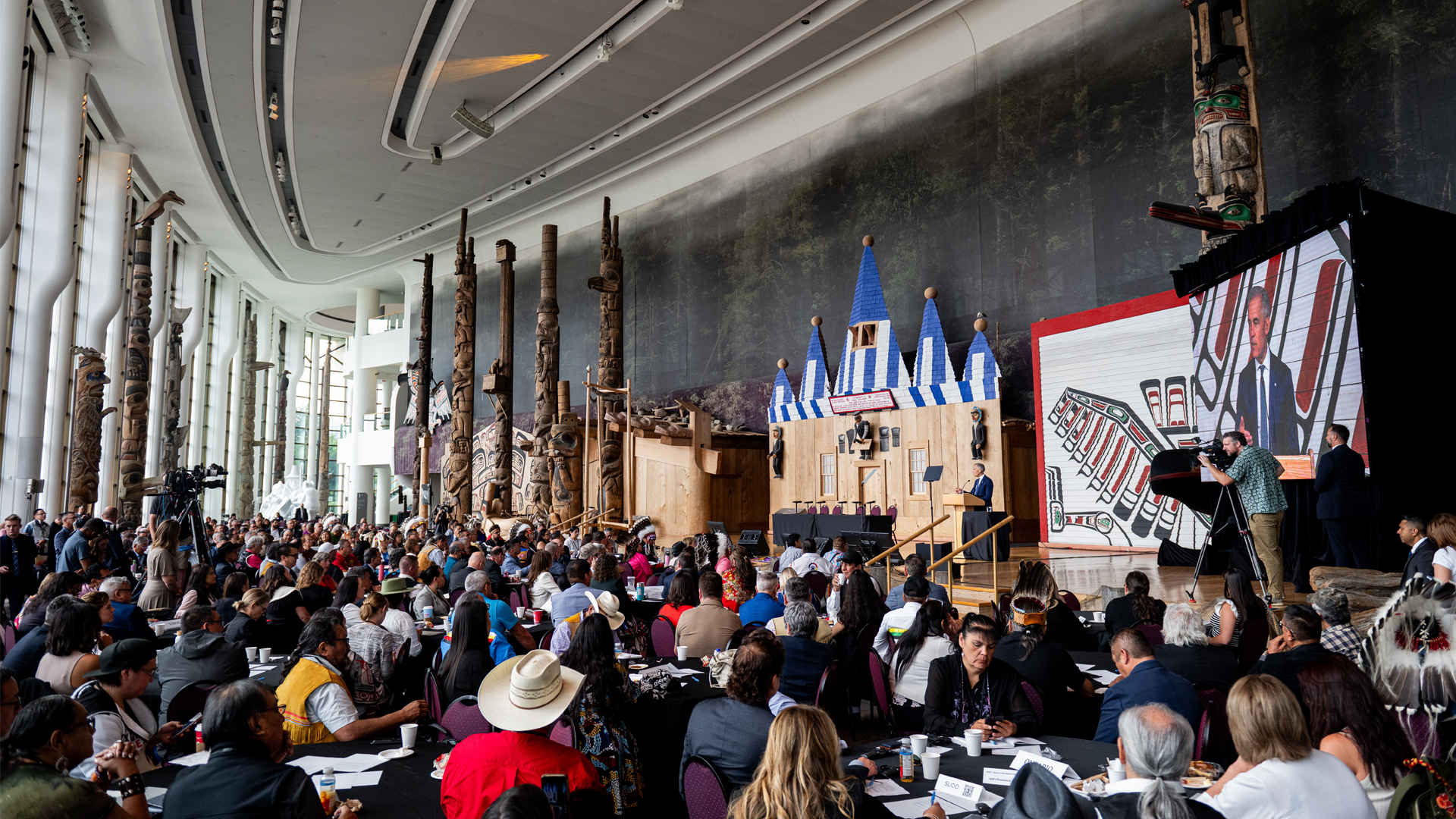Prime Minister Mark Carney won the April 28 election on a promise of transformative, nation-building change – and Canadians are on board.
Canadians understand that U.S. President Donald Trump’s second administration has upended the global order and our place in it. They have shown an appetite for big changes, notably through a sustained grassroots boycott of American goods, a surge in “Buy Canadian” sentiment and a 35-per-cent drop in travel to the U.S. between May 2024 and May 2025.
During the election campaign, Carney seemed to give voice to this widespread desire for transformative change. On election night, he declared this was “a time to be bold, to meet this crisis with the overwhelming positive force of a united Canada.”
But he’s not being bold, let alone following through on nation-building. Behind the rhetoric and expressions of urgency lies an utter lack of imagination, a tired mix of recycled ideas and pet projects that could have come from any government over the past four decades. Far from generational change, his plans risk reinforcing the (U.S.-vulnerable) status quo.
For too long, Canada has operated on the belief that low taxes, light regulation and minimal government interference would deliver broad, lasting prosperity.
That illusion is collapsing.
If we’re serious about creating a more resilient, equitable and productive country, government must take a far more active role. Once we accept that basic truth, our horizons expand. As a wealthy, stable country, Canada has the means and the opportunity to build something far better.
We won’t solve today’s challenges with tax cuts or efficiency tweaks. That’s why we, along with more than 100 colleagues, are also calling for a royal commission to help Canadians jointly develop real nation-building possibilities in this critical time.
A blast from the past
In contrast with those bold ideas, Carney’s signature policy package screams inertia: a tax cut, a civil service hiring freeze and plans to shrink government using AI. It’s a throwback to 1980s orthodoxy – smaller government, lower taxes. It’s also deeply unserious.
At a time of economic and political uncertainty, this fixation is not just outdated. It’s counterproductive. This isn’t “nation-building.” It’s nation-maintenance on the cheap.
What are Carney’s “big” changes?
- A cross-country pipeline, promoted for decades by a self-interested energy industry, delivering a product for which demand is only going to decline as the rest of the world decarbonizes.
- Lower provincial trade barriers, which he can’t deliver without co-operation from the provinces and territories, with benefits that have been vastly oversold.
- Setting up a process where the government gives itself the power to exempt any project from existing laws.
- Even more trade negotiations with other countries without providing sufficient funding to help Canadian businesses break into these markets.
- A national housing strategy that, while necessary, is hardly transformational.
None of these break new ground. Some, especially those involving the sidelining of Indigenous rights and the doubling down on resource extraction, are actively regressive. They disregard decades of progress on reconciliation and revive a colonial vision of Canada as a raw resource supplier – a mindset that was outdated even in the 19th century.
If we truly face an existential crisis – and the rise of authoritarianism in the U.S. suggests we do – then tax cuts and pipelines simply won’t cut it.
Bold actions are needed
We don’t lack for innovative, exciting, truly nation-building proposals that would both address consensus needs and build needed social cohesion.
As Hadrian Mertins-Kirkwood of the Canadian Centre for Policy Alternatives suggests, why not establish a youth climate corps? Or a trans-Canada network of EV chargers? Or a publicly owned coast-to-coast high-speed rail system?
Beyond those, what about finally providing all Canadians, particularly Indigenous communities, with access to clean water and non-diesel-generated electricity? Or following the European lead and addressing the market power of large U.S. tech companies?
Why not pay for all this by issuing Canada victory bonds, which would also give Canadians a financial stake in their country?
Wouldn’t these projects make Canadians active and proud participants in the future of their country?
International options can also help
Going further, Canada could lead in building a durable international alliance to counter global democratic backsliding, anchored not just in trade but in broad, treaty-based economic and security partnerships.
This would mean re-establishing critical supply chains and supporting domestic production so that Canada is not caught out by future global disruptions such as a global pandemic or the loss of a previously dependable ally.
It would involve going beyond the decades-long Canadian fetish for signing trade agreements and instead actively helping Canadian businesses expand into tougher markets beyond the U.S. Such a shift will require real investment and a stronger, more capable public sector. It requires more government, more expenditures. Not fewer.
Five big moves Mark Carney must make to secure Canada’s place
A Canadian nuclear weapons program to deter Trump is not feasible
What constitutional history teaches us about the 51st state discourse
Domestically, governments must move past their ideological aversion to planning and start shaping the economy with a long-term vision, looking ahead five, 10, even 20 years instead of reacting to short-term trends.
Letting trade policy substitute for industrial policy is no longer an option. Almost by definition, any new trade and security agreement with the United States will irrevocably link our fate to theirs. We need a deliberate, forward-looking approach to build the economy and society we want.
Canada must shift from patchwork fixes to strategic planning. As B.C. Premier David Eby notes, we need to move beyond “blockbuster deals” – costly, ad hoc projects that often serve narrow regional interests.
We need a comprehensive, sector-by-sector strategy focused on productivity, decarbonization and economic sovereignty. The European Union’s industrial pivot since 2019 offers a useful model. A pipeline and more resource extraction aren’t a plan. They are inertia, dragging us back to a colonial economic model.
We must also reinvest in education at every level. In the headlong rush to extract natural resources, our leaders are overlooking the fact we are still part of a knowledge economy. Preparing for the future means equipping Canadians with the skills – technical and human – essential for navigating a rapidly shifting global landscape. Only a coherent, cross-sector policy approach will position us to thrive in this new era.
As a country, we need to relearn how to do big things. That means breaking with old habits and accepting new realities – something many politicians still resist.
Canada can’t miss this rare chance to craft a new national policy. We must respond to Trump and the broader global shift – not reactively, but with vision. From the collapse of the old order, we can build something better: a country that reflects the values we share. The scope of change may be unsettling, but that’s no excuse for thinking small.









